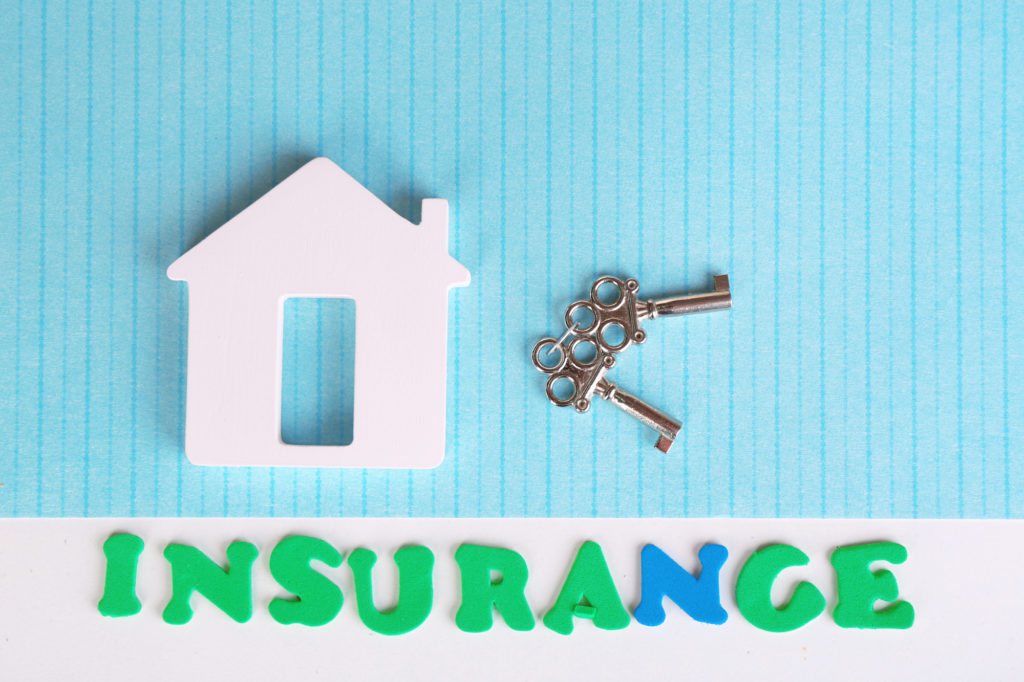
The price of existing single-family homes sold from January to July 2018 averaged $297,371. As for new homes, they sold for an average of $377,242.
With that kind of money on the line, it’s no wonder mortgage lenders require borrowers to have homeowners insurance. That goes for the 66% of homeowner population with a mortgage.
As a borrower yourself, you most likely have this type of insurance. You know it covers your home’s structure, personal belongings, and additional living expenses (ALE). It also protects you from certain liabilities.
Now, the question is, what does homeowners insurance not cover?
That’s right. There are such things that your policy doesn’t cover – called “exclusions.” It’s vital you know what these are because being in the dark can put you at serious financial and liability risks.
So, keep reading to learn of these homeowner insurance coverage exclusions!
1. Flooding
There are many things about homeownership no one will tell you about. That includes what that “water damage coverage” in your homeowner’s insurance policy is for. FYI, water damage, together with freezing, is the second most common reason for homeowners insurance claims.
If you have a standard policy, it’ll only cover you for water damage your leaky dishwasher may have caused. It doesn’t include protection from floods caused by natural disasters. That means you don’t get coverage against damage from heavy rainfalls or an overflowing body of water.
The good news is, you can purchase flood insurance from the National Flood Insurance Program. You should get this separate policy especially if you live in one of these states with the greatest risk of flooding.
2. Sewer Backups
Aside from flooding caused by natural phenomenon, sewer backups are also common reasons for water damage claims. What a lot of people don’t know is that typical homeowners coverage doesn’t protect against damage from sewer backups.
But extra coverage is available! To know more about water back-ups and other disasters you should consider having coverage for, use this checklist from Chip Berry Insurance.
3. Gradual Damage
Gradual damage refers to damage that occurs little by little, over a long period. In many cases, the problems don’t make themselves apparent right away. That’s because many of them occur in hard-to-access areas (think roof and plumbing leaks, roof and electrical wiring deterioration, etc.).
So, that ceiling, wall, or floor damage from leaky pipes? Your typical homeowner’s insurance policy won’t cover that. The same goes true for roof deterioration that has long since shown must-repair signs.
4. Normal Wear and Tear
Since we’re on the subject of gradual damage, let’s talk about normal wear and tear too. To put things in perspective, let’s use rain gutters for example.
This roof component protects both the inside and outside of your home by keeping water away from it. If it starts to malfunction, you’re looking at serious water damage.
It’s for this reason you should pay attention to the signs of needed gutter replacement or repairs. Cracks, water pooling, and stressed seams are all common gutter wear and tear indications.
If you don’t, you’ll shell out money from your pocket to fix the water damage worn gutters can cause. Your home insurance won’t pay out because the problem arose from wear and tear you didn’t address.
5. Termite Infestation
Did you know that there are a specific termite species that cost the nation $2 billion in damages every year? That’s the eastern subterranean termite, native to the eastern U.S. But all in all, experts say termites in general cause more than $5 billion in damages.
What’s more, standard homeowners insurance policies don’t cover damages these pests cause. That’s why it’s best you carry out home inspections every year. That includes attic inspections, especially since wildlife aside from termites also love to nest and breed in this part of homes.
6. Nuclear Hazards
Standard homeowners insurance policies exclude nuclear accidents and their resulting damages. The good news is, these incidents are rare. Plus, even if your home sustains damage from a nearby nuclear facility, the facility will take responsibility for your losses.
7. Mold
Many carriers have already excluded mold in their policies. Although some may provide coverage for mold removal, most of them won’t cover the resulting damages.
Besides, you don’t want mold in your home. Not only because they’re disgusting, but also because they can trigger allergies among many other health issues. If anyone in your household is one of the 50 million Americans suffering from allergies, make sure you get rid of molds right away.
8. Earthquakes
Standard homeowners insurance policies also don’t cover earthquakes. The same goes true for sinkholes or any natural movement of the earth.
Don’t fret yet, as you can get extra insurance for such disasters. Shop around for insurers around your area offering earthquake coverage
9. Dog Bites
In 2016, homeowners insurance companies paid out over $600 million in dog bites and other injuries caused by dogs. In fact, dog-related claims made up more than a third of all homeowners insurance claims that year.
Because of this, some insurers started to exclude such events from their policies. That may include your coverage, so be sure to check. If it’s an exclusion, you can still purchase it as extra coverage.
10. Expensive Collectibles
Does homeowner insurance cover theft? It does, but only to a certain extent.
For instance, typical policies provide between 50 and 70 percent of coverage for clothes, sports gear, furniture, and other personal belongings. But when it comes to jewelry, fine art pieces, and other expensive collectible items, your policy may have them listed under “exclusions.”
Even if your policy does provide coverage for such, it may only have a small limit. Purchasing a separate policy for them is the best way to protect these items.
Knowing What Does Homeowners Insurance Not Cover Can Mean Saving a Lot
As you can see, there’re a lot of answers to your question, “What does homeowners insurance not cover?” Now that you know, you should figure out which of these you need more or extra coverage for. If you have plenty of super expensive items, or you have a Rottweiler for a family dog, then it’s best you get a separate policy for them.
That way, you can avoid paying out-of-pocket in case you get into an accident.
Still curious? If so, then make sure you get more of your questions answered by visiting our blog’s home and garden section!

